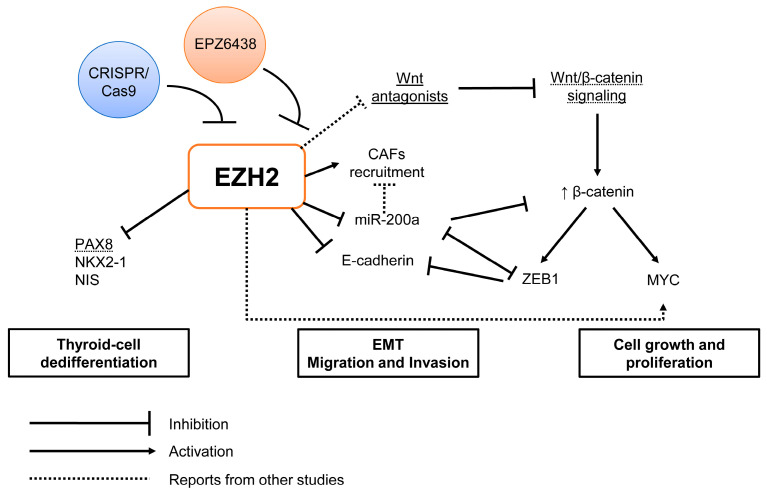Figure 8.
Graphical summary of the study. EZH2 may act in different steps of anaplastic thyroid cancer aggressiveness, such as dedifferentiation, cell migration, invasion and proliferation. In thyroid cell dedifferentiation, EZH2 by H3K27me3 silences PAX8, NKX2-1 and NIS genes. In EMT signaling, EZH2 inhibits E-cadherin and miR-200a expression and induces ZEB1 and ZEB2 mesenchymal genes to induce EMT. Moreover, downregulation of miR-200a induces the recruitment of cancer-associated fibroblasts (CAFs), which are associated with poor outcome and metastasis. Finally, EZH2 modulates Wnt/β-catenin signaling, which, besides EMT, is associated with cancer cell growth and proliferation. Here, we show that inhibition of EZH2 expression and/or its methyltransferase activity with CRISPR/Cas9 or EPZ6438, respectively, improves thyroid cell differentiation, induces MET and inhibits cell proliferation.

